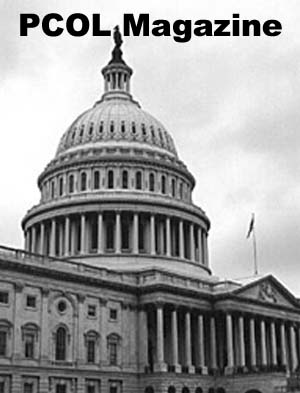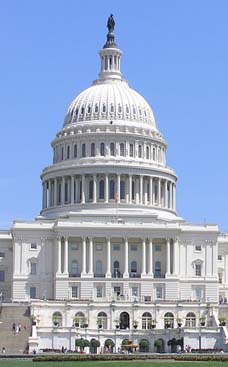
Despite a packed legislative agenda and with the end of the Congressional session quickly approaching, this outstanding effort was spearheaded in the Senate by Senators Dianne Feinstein (D-CA), Chuck Hagel (R-NE), Richard Durbin (D-IL), and Norm Coleman (R-MN), with a record 53 Senators from both sides of the aisle signing the letter. On the House side, Representatives Howard Berman (D-CA-28), Christopher Shays (R-CT-4), Joseph Knollenberg (R-MI-9), and Vic Snyder (D-AR-2) drove the effort to garner more than 109 Republican and Democratic signatures on the letter to President Bush. Currently, the proposed FY 2007 International Affairs Budget totals 35.1 billion dollars -- a mere 1.2 percent of the overall FY 2007 Federal Budget -- yet it provides the U.S. with priceless opportunities to generate much needed allies, partners and friends.
"Today, more than ever, it is critical that we continue to fund our U.S. International Affairs Budget," said Sen. Feinstein. "U.S. foreign assistance programs offer relief to the millions of victims of poverty, starvation, and illiteracy found throughout the developing world. By giving these communities in need the tools to target these root causes of terrorism, we not only help promote basic humanitarian values, we also help establish greater stability and security abroad, and encourage greater economic prosperity here at home."
"As a former Peace Corps volunteer, I can attest to the substantial contributions foreign assistance programs make to economic development, higher living standards and improved health and nutrition," noted Rep. Chris Shays.
A record-breaking 162 Members of Congress from both sides of the aisle urges President George W. Bush to make a greater investment in America's diplomatic and development programs as the Administration prepares its FY 2008 Federal Budget Request
Congress Sends Bipartisan Message to President: Invest in Diplomatic & Development Programs
U.S. Global Leadership Campaign Applauds Overwhelming Congressional Support to Increase the U.S. International Affairs Budget Request
WASHINGTON, Dec. 27 /PRNewswire-USNewswire/ -- Today, a record-breaking 162 Members of Congress from both sides of the aisle urged President George W. Bush to make a greater investment in America's diplomatic and development programs as the Administration prepares its FY 2008 Federal Budget Request. In letters to the President, Members of both the Senate and the House called for increased funding for the global programs encompassed in the U.S. International Affairs Budget, which are vital to ensuring our national security, building economic prosperity, and strengthening humanitarian values.
"In this challenging political environment -- and as the legislative calendar came to a close -- it is truly remarkable that a record number of Senators and Representatives made it a priority to send the President a strong, bipartisan message on the importance of the International Affairs Budget to America's standing in the world," said George Ingram, President of the U.S. Global Leadership Campaign.
Despite a packed legislative agenda and with the end of the Congressional session quickly approaching, this outstanding effort was spearheaded in the Senate by Senators Dianne Feinstein (D-CA), Chuck Hagel (R-NE), Richard Durbin (D-IL), and Norm Coleman (R-MN), with a record 53 Senators from both sides of the aisle signing the letter. On the House side, Representatives Howard Berman (D-CA-28), Christopher Shays (R-CT-4), Joseph Knollenberg (R-MI-9), and Vic Snyder (D-AR-2) drove the effort to garner more than 109 Republican and Democratic signatures on the letter to President Bush.
In order to meet the complex global challenges and opportunities of the 21st century, it is critical that the U.S. adequately invest in the International Affairs Budget. However, despite moderate increases in recent years, the relative funding level for international programs is at a historic low. Today, the International Affairs Budget is 15 percent less in real terms than it was at the height of the Cold War.
"Today, more than ever, it is critical that we continue to fund our U.S. International Affairs Budget," said Sen. Feinstein. "U.S. foreign assistance programs offer relief to the millions of victims of poverty, starvation, and illiteracy found throughout the developing world. By giving these communities in need the tools to target these root causes of terrorism, we not only help promote basic humanitarian values, we also help establish greater stability and security abroad, and encourage greater economic prosperity here at home."
For a little more than one percent of the total U.S. Federal Budget, the International Affairs Budget supports numerous programs around the globe that ensure the security, prosperity, and well-being of Americans. A greater investment in the International Affairs Budget in FY 2008 will provide the U.S. with a substantial array of foreign policy tools and capabilities to combat global terrorism, stem the growth of global poverty, wage the war against HIV/AIDS, and encourage economic activity at home and around the globe.
"The U.S. International Affairs Budget supports many critical elements of the struggle for hearts and minds, including international broadcasting and other public diplomacy, educational exchange programs, and efforts to promote democracy, human rights and the rule of law," said Rep. Berman. "We need to increase the International Affairs Budget -- not as a favor to others, but as a means to strengthen our own national security."
In today's volatile world, the International Affairs Budget is imperative to establishing global stability and protecting Americans at home and abroad. Additionally, as global markets evolve, the initiatives supported by the International Affairs Budget increase economic opportunities, promote our business interests around the world and create American jobs through increased exports. Our international programs also demonstrate America's commitment to our humanitarian values and democratic institutions.
"As a former Peace Corps volunteer, I can attest to the substantial contributions foreign assistance programs make to economic development, higher living standards and improved health and nutrition," noted Rep. Shays.
Currently, the proposed FY 2007 International Affairs Budget totals 35.1 billion dollars -- a mere 1.2 percent of the overall FY 2007 Federal Budget -- yet it provides the U.S. with priceless opportunities to generate much needed allies, partners and friends.
About the U.S. Global Leadership Campaign
The U.S. Global Leadership Campaign (USGLC) is a broad-based, nationwide coalition of businesses, non-governmental organizations (NGOs), and community leaders that advocates for a strong U.S. International Affairs Budget. Members of the USGLC -- a vibrant, influential network of 400 organizations and thousands of individuals -- engage policymakers in the nation's capital and educate the public around the country to build support for these essential programs.
The International Affairs Budget provides America with the fundamental tools to meet the global challenges of the 21st century and is critical to protecting our national security, building economic prosperity, and strengthening humanitarian values. For more information, visit http://www.usglc.org.


















